We will celebrate December by looking three years back, through the 713 photos I processed in December, 2015. I hope to find images which depict favorite memes: critters of all kinds, especially birds, fences, beautiful skies and reflections, and scenes which speak for themselves.
My favorite photo effect of the month was the sinuous neck of a Tricolored Heron in our back yard:

Mary Lou and I led the monthly wetlands walk along the boardwalk on the grounds of the Regional Library in neighboring Pembroke Pines:
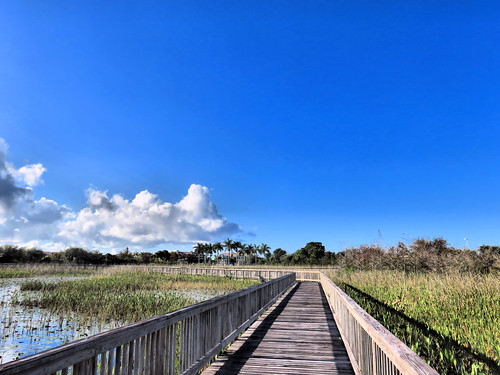
We started out the month following up on the report of an unusual species at Markham Park about 10 miles north of our south Florida home. It was a Western Spindalis, a tanager native to the Caribbean islands. We failed to find it on our first visit, but I got a "lifer" Spot-breasted Oriole. Four of them put on a good show:

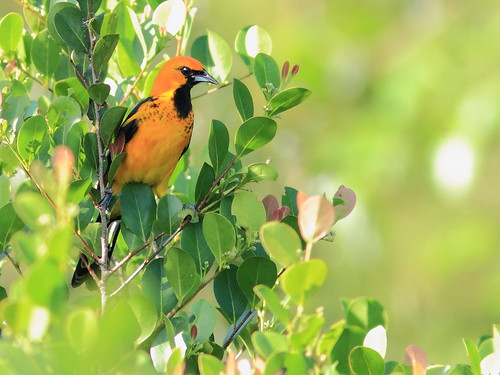
A Wood Stork flew over the park:
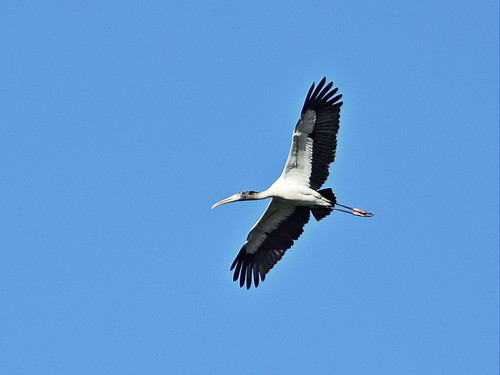
We returned to Markham Park on December 10 and were rewarded with great views of the Western Spindalis:
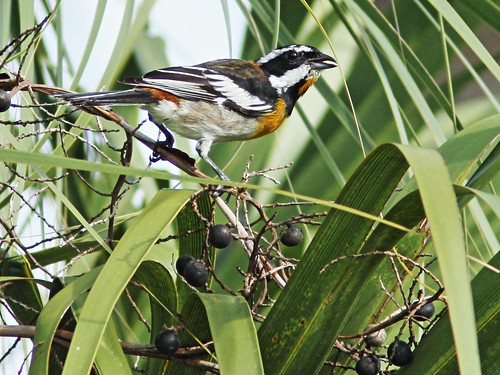
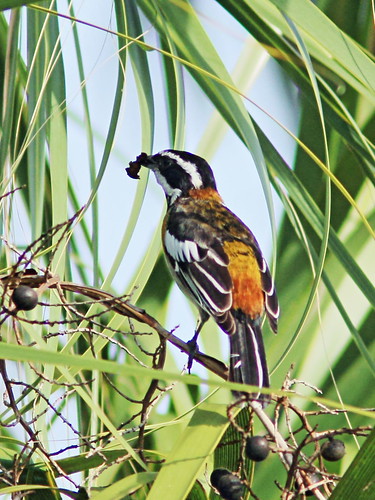
Few American Kestrels breed in far south Florida, so it was good to see these small falcons arrive for the winter:
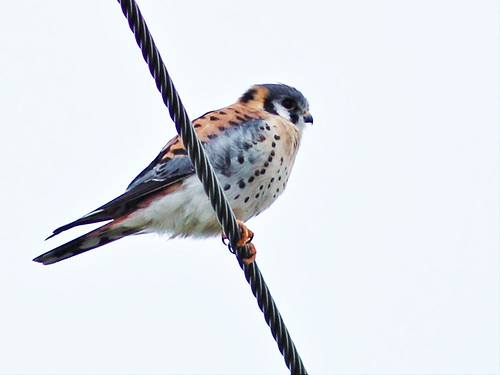
Another visiting raptor was the Northern Harrier. This is a "Gray Ghost" male:
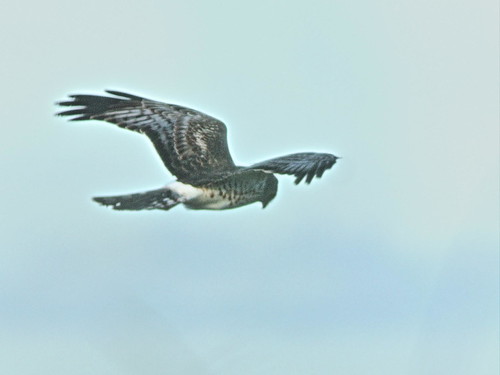
A Turkey Vulture looked down at us from the broken top of a dead palm:
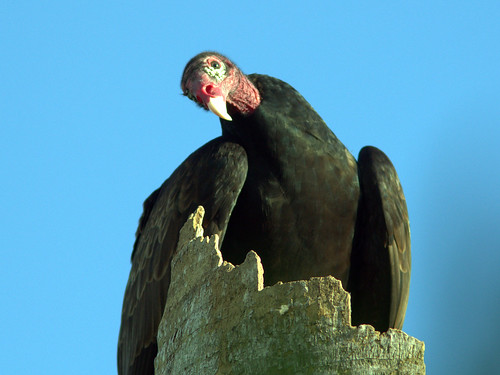
It was difficult to ignore a Northern Cardinal as it posed so nicely in good light:
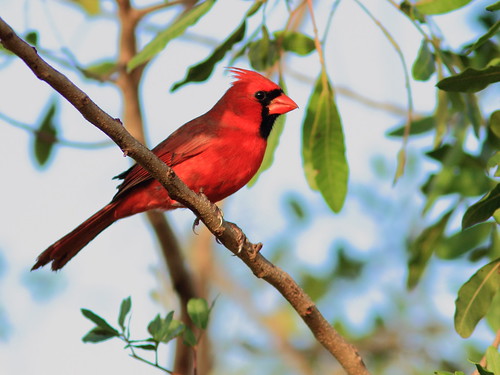
A male Pileated Woodpecker suddenly swooped down past me:
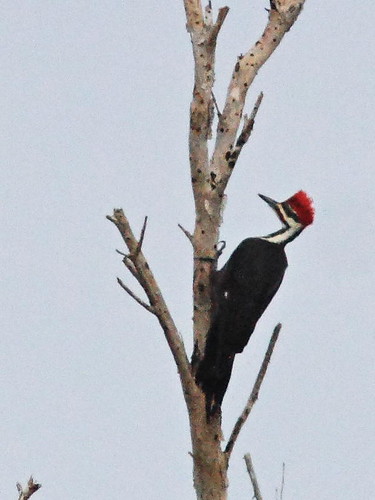
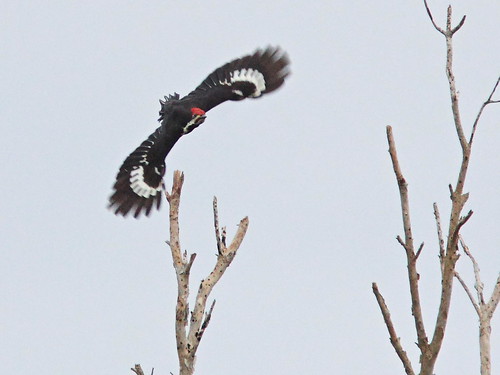
An Ovenbird peered out from the branches which formed a natural "vignette:"
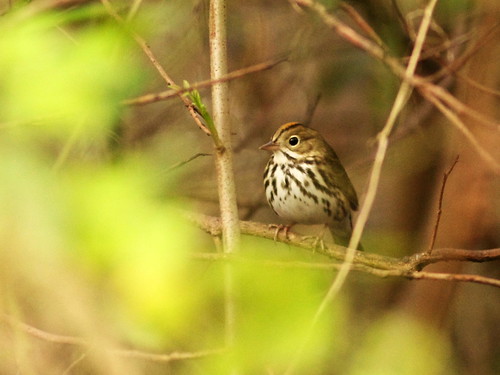
The local Bald Eagles were preparing for a family. This is the male, "Pride:"

The female, "Jewel" sat deeply for a few days, rearranged the nest a bit, and laid her first egg before Christmas:
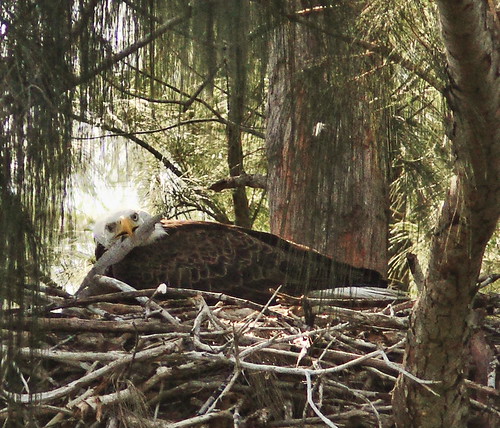
Turning to other critters, a Green Metallic Bee hovered long enough for me to obtain a clear image:
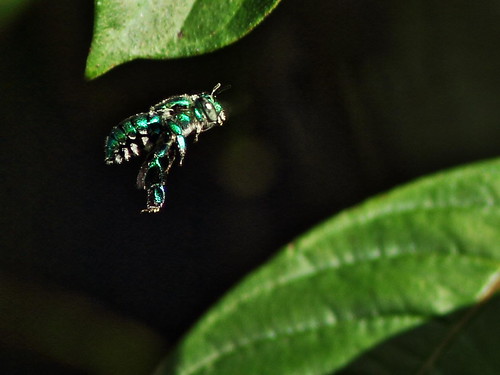
A Dorantes Longtail visited a blooming Bidens alba. The seeds of this common "weed" are troublesome Shepherd's Nettles, but it provides more nectar than any other native plant. Only the cultivated citrus trees are more productive:
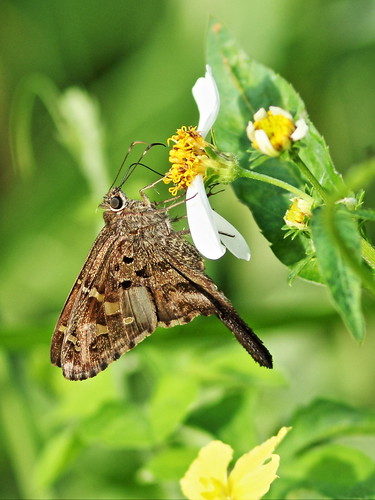
A Soldier butterfly also favored the Bidens:
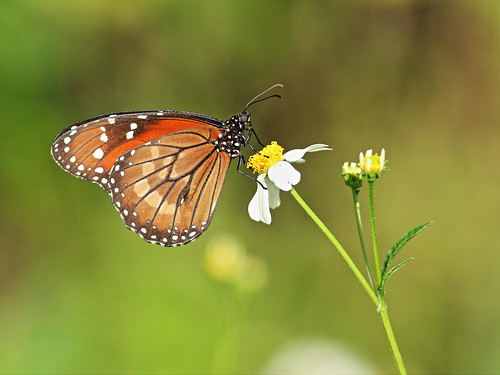
A Garden Spider tended her web:
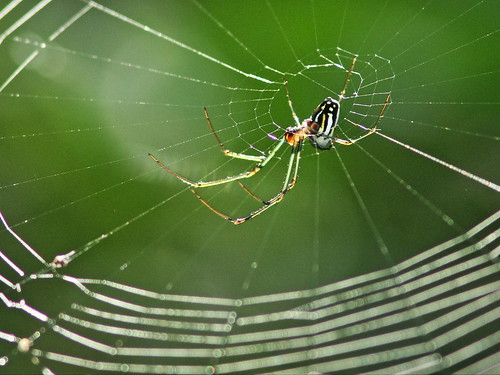
A Marsh Rabbit chewed on the grass:
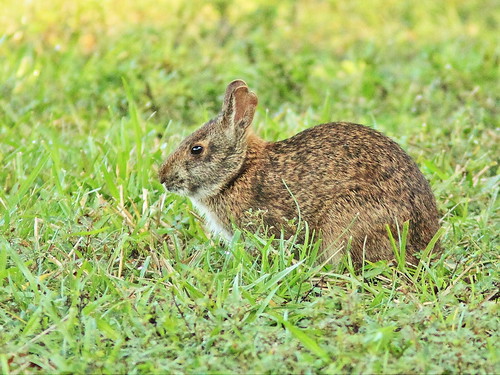 The Christmas Moon set on the morning of December 26, with the Pine Bank reflecting on the still water:
The Christmas Moon set on the morning of December 26, with the Pine Bank reflecting on the still water:
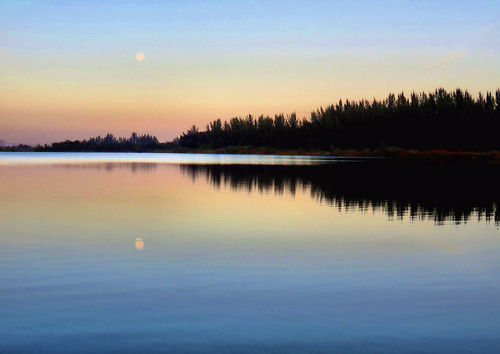 = = = = = = = = = = = = = = =
= = = = = = = = = = = = = = =
Linking to Misty's CAMERA CRITTERS,
Linking to Eileen's SATURDAY'S CRITTERS,
Linking to SKYWATCH FRIDAY by Yogi, Sylvia and Sandy
Linking to WEEKEND REFLECTIONS by James
Linking to BirdD'Pot by Anni
Linking to Our World Tuesday by Lady Fi
Linking to Wild Bird Wednesday by Stewart
Linking to Wordless Wednesday (on Tuesday) by NC Sue
Linking to ALL SEASONS by Jesh
Linking to Fences Around the World by Gosia
________________________________________________
Please visit the links to all these memes to see some excellent photos on display
________________________________________________
As I have been doing every month, it's time to look back on events of three years ago, helping to know what to expect out on the Wounded Wetlands as the seasons change from wet to dry (unless El Niño has his way). I will look for favorite memes among nearly 800 photos I processed that month-- critters of all kinds, fences, skies, reflections, and those scenes which need no description.
During November, 2015 we stayed put in south Florida. One of our favorite species had returned to spend the winter. On November 1, a male Painted Bunting posed very nicely in a Brazilian Pepper. The leaves and berries accented the many colors of his coat:
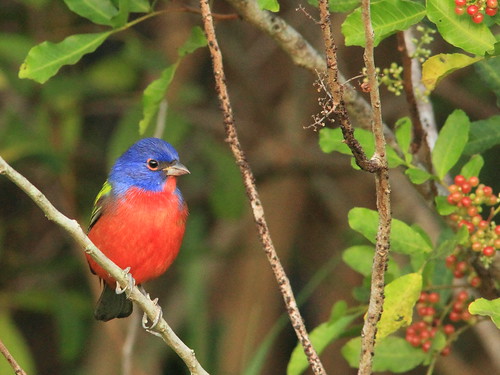
A female Painted Bunting was beautiful in her own right:
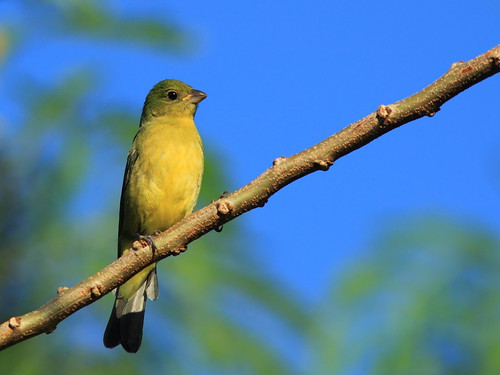
That same day I was treated to a Giant Swallowtail which paused for a sip of nectar from a Lantana blossom:
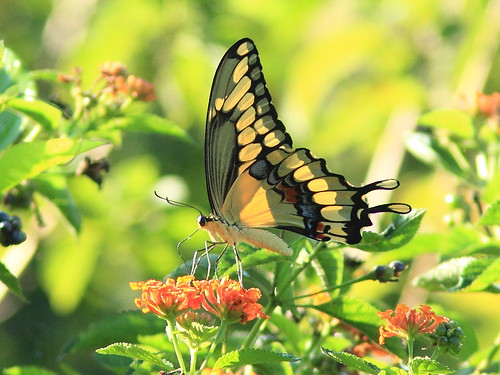
A Gulf Fritillary also enjoyed the Lantana...
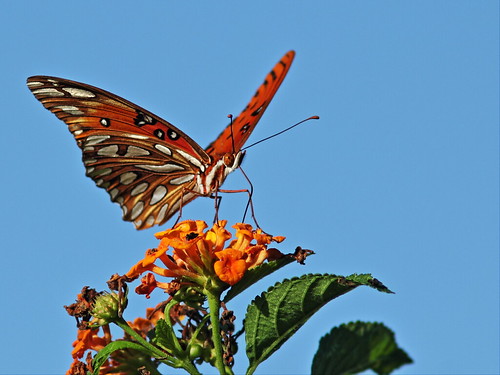
...as did a Long-tailed Skipper:
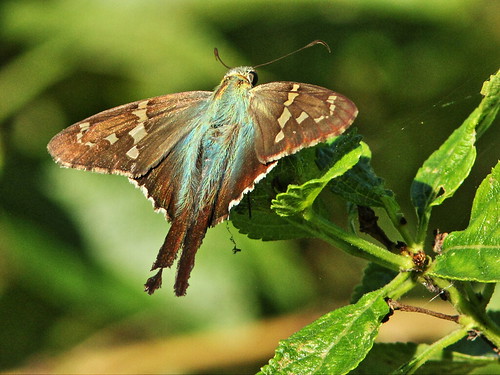
Ovenbirds had recently arrived:
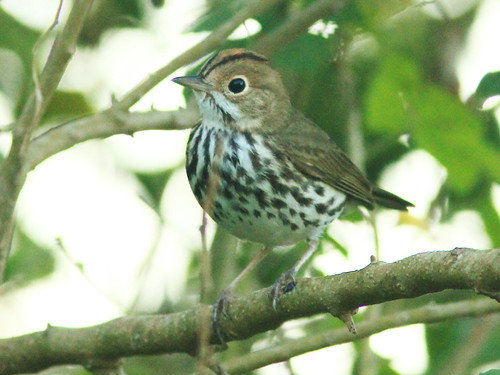
Black-throated Green Warblers moved though on their way to the Tropics:
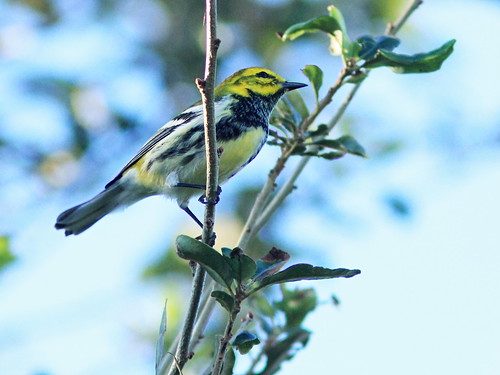
Wilson's Warblers were also passing by:
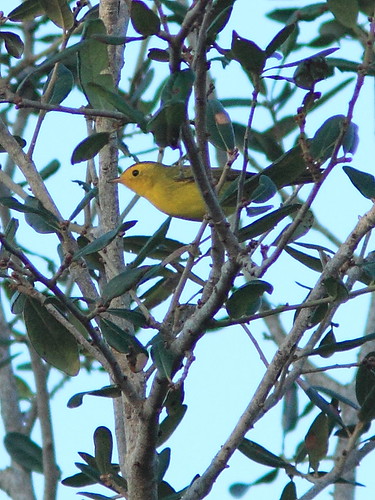
An Eastern Phoebe will plan to stay here for the winter...
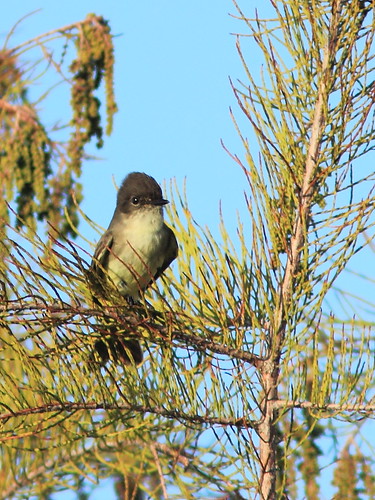
...along with a Ruby-throated Hummingbird...
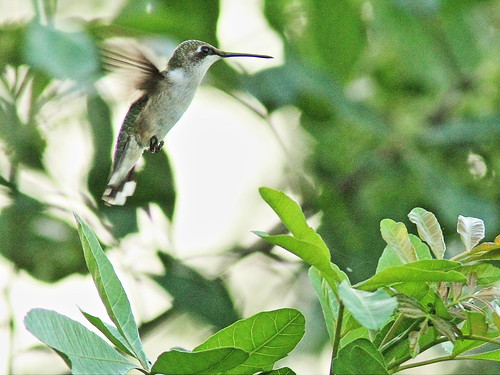
...as will the Swamp Sparrow...
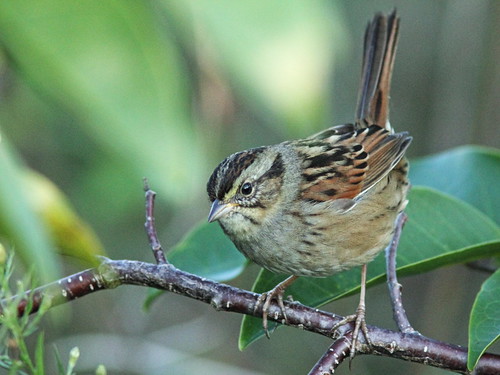
...and an American Kestrel, perched atop a Royal Palm spire:
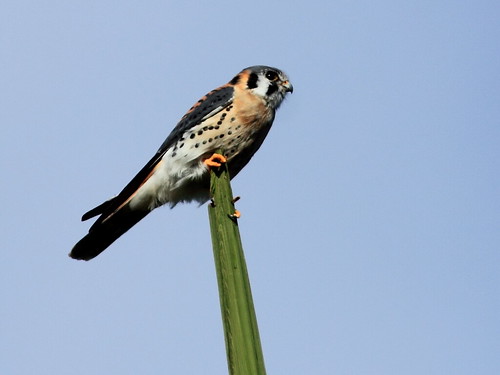
Palm Warblers will be abundant here all winter-- some call them "Florida Sparrows:"
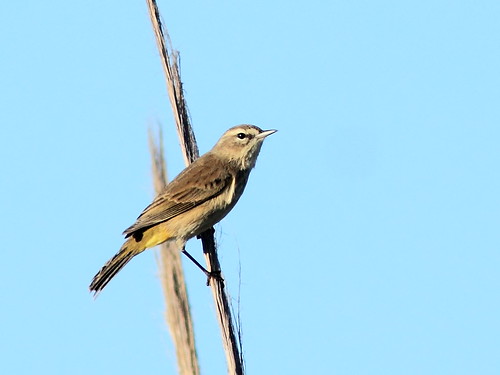
We had a few thunderstorms. This one was brewing in front of the morning sun:
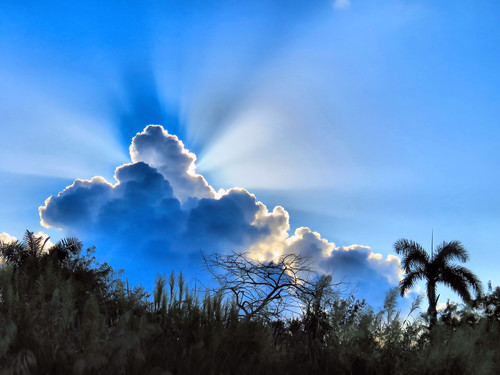
Most mornings were still. Here the rays of the rising sun were mirrored over the lake on the opposite horizon:
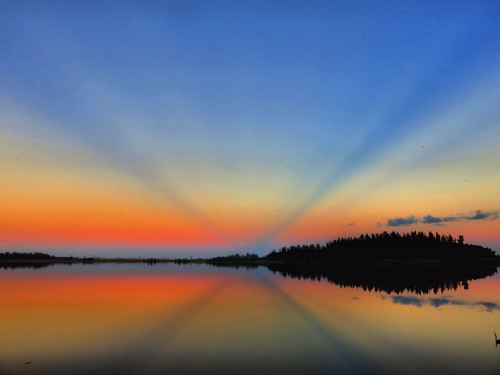
Flowers fourished as the temperature moderated. Red Ixora bloomed alongside the entrance gate to our subdivision:
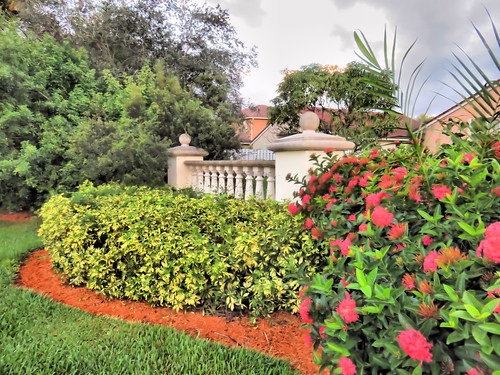
In the rookery, we hoped that this Black-crowned Night-Heron would nest this season:
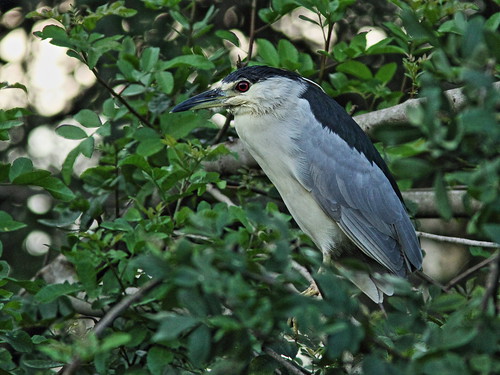
As breeding season approaches, this Yellow-crowned Night Heron will grow plumes and take on a golden hairdo:
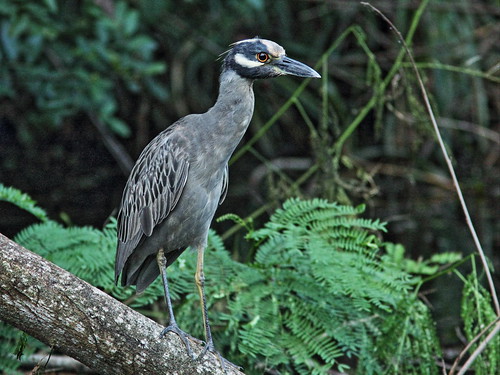
At nearby Markham Park, we enjoyed the visit of a wandering tanager from the Caribbean, a Western Spindalis:

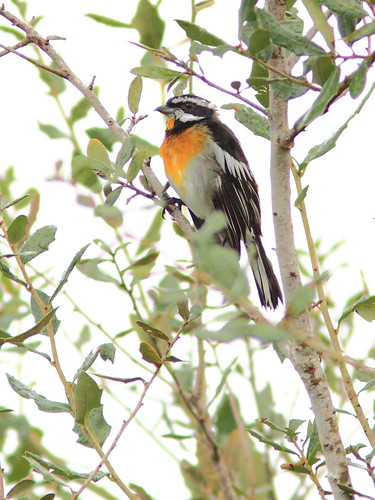
The Spot-breasted Oriole was associated with the vagrant Spindalis. A new species for me, it is only found in a few selected localities:
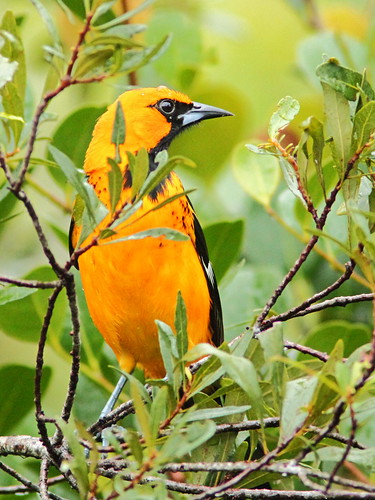
= = = = = = = = = = = = = = =
Linking to Misty's CAMERA CRITTERS,
Linking to Eileen's SATURDAY'S CRITTERS,
Linking to SKYWATCH FRIDAY by Yogi, Sylvia and Sandy
Linking to WEEKEND REFLECTIONS by James
Linking to BirdD'Pot by Anni
Linking to Our World Tuesday by Lady Fi
Linking to Wild Bird Wednesday by Stewart
Linking to Wordless Wednesday (on Tuesday) by NC Sue
Linking to ALL SEASONS by Jesh
Linking to Fences Around the World by Gosia
________________________________________________
Please visit the links to all these memes to see some excellent photos on display
________________________________________________
El Niño is bringing us rain, which also means some beautiful clouds at dawn on the wetlands...
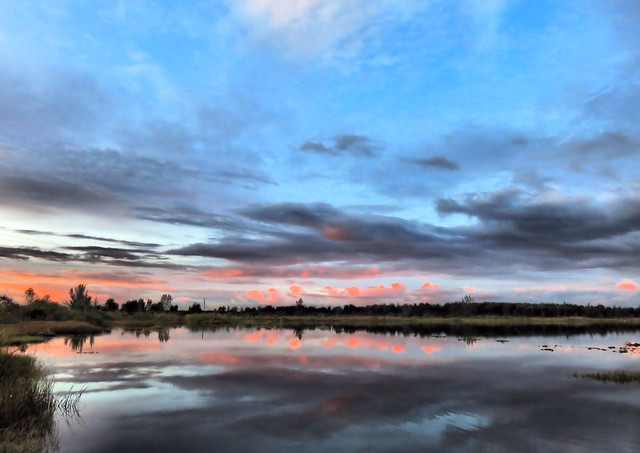
...dappled reflections of the full Moon rising behind the clouds over our back yard lake...
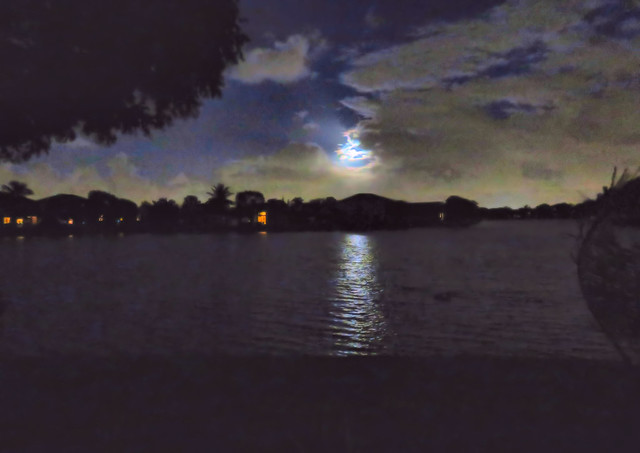
...butterflies such as this Monarch...

...and plenty of mosquitoes! Many looked like this one, with white "heads" (actually the top of their thorax is white), species unknown but probably a type of salt marsh mosquito:
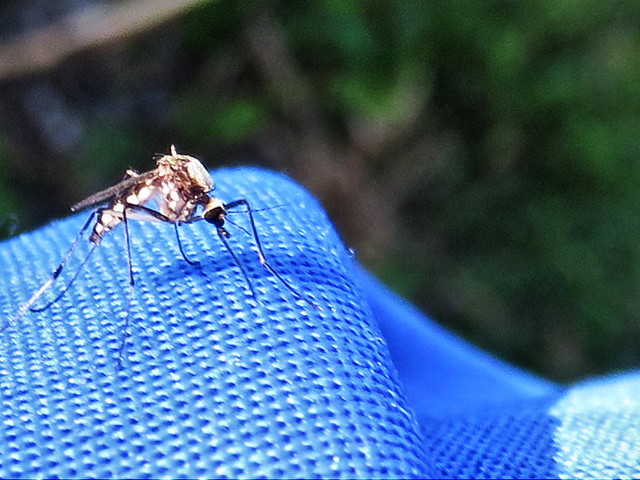
Chasing after rare birds can be a wonderful sport. In recent years I have lost some of my zeal to add new species to my life list. I passed by the opportunity to tick a Variegated Flycatcher in Fort Lauderdale's Evergreen Cemetery. It persisted for about a week, during which time birders took some wonderful photos of this wanderer from Central or South America. This was only the second time it has been seen in Florida. When I saw the great photos taken by my friends I felt tinges of envy as well as guilt for my sloth in not bothering to pursue it.
When I lived in New Mexico I had the luck of seeing a closely related species, the Piratic Flycatcher, a resident of Mexico as well as Central and South America. I call it pure luck because Mary Lou and I already had plans to drive to visit our son and family in the Texas Panhandle for a few days, and this rare bird was reported only a day or so before our scheduled departure.
This was only the third confirmed sighting of a Piratic Flycatcher ever recorded in the USA, the second for New Mexico. Our 220 mile route to Amarillo from the Albuquerque area took us close by the site of the sighting which was at Bosque Redondo, near Fort Sumner, New Mexico.
We missed it on the way out, but as we returned home four days later we again made the brief detour, and immediately found a small group of birders watching the Piratic Flycatcher. Within minutes after arriving I focused my little 2.0 megapixel point-and-shoot camera through the lens of my spotting scope and obtained some fairly clear photos (September 16, 2003). The first USA sighting of a Piratic Flycatcher occurred in Florida in 1991.
The first Piratic Flycatcher to visit Florida was initially misidentified as a Variegated Flycatcher, so I can consider this as my retroactive consolation prize:
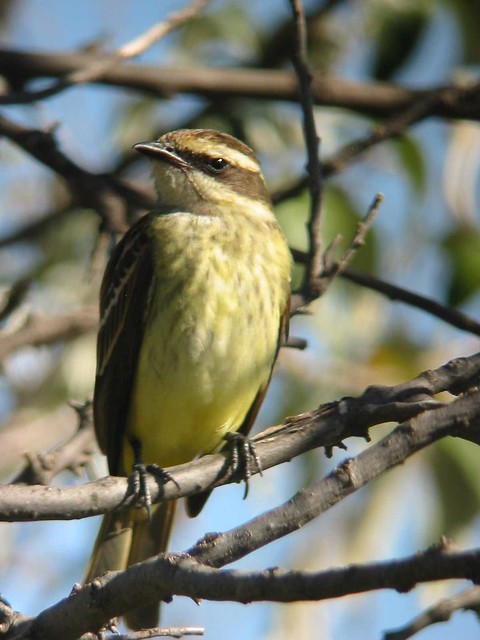
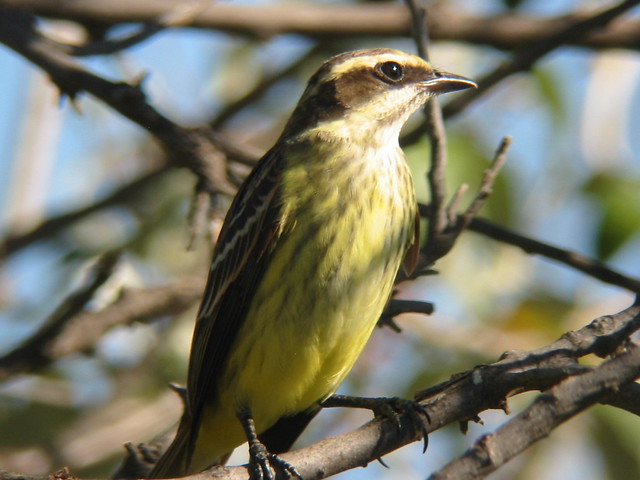
See more about this interesting bird, including how it gets its name here in my January, 2007 blog (That's right-- I did not start blogging until late 2006).
Perhaps it was that nagging guilt that stimulated me to get moving and see another rare bird. This time it was a vagrant from the Bahamas which showed up in Markham Park, only about a half hour drive from our home.
It was a Western Spindalis, a species of tanager which rarely visits Florida and is almost never seen very far inland. I had seen one 10 years previously in Key West. This one possibly was helped to get here by the strong easterly winds and storms we had been experiencing during the prior two weeks. We drove through periods of heavy rain without much hope of seeing the bird.
When we parked in a lot near where the spindalis had last been reported the place looked dreary and deserted. Mary Lou suggested we drive along the road, and we immediately saw two birders peering through binoculars and aiming their cameras. After a quick U-turn to park we hurried over towards them just as the rain increased. Mary Lou held an umbrella over my camera as I manipulated a garbage bag to protect it. We saw the bird for only 3 or 4 minutes before it flew away. It was beautiful indeed!
Male Western Spindalis:
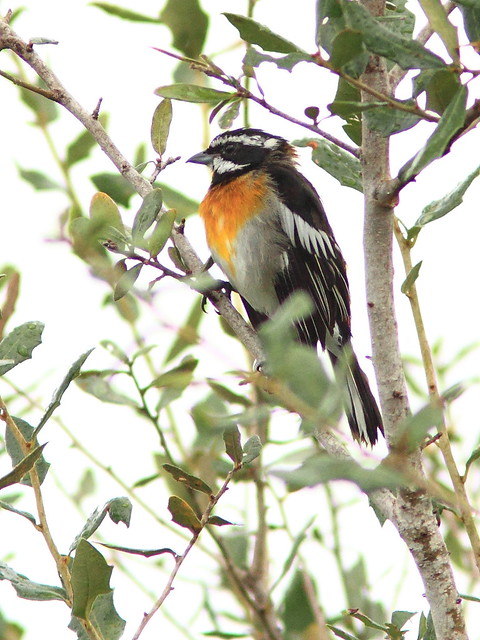

The spindalis was in the company of several Spot-breasted Orioles. This Central American species was introduced into South Florida in the late 1940s and became rather common in older established neighborhoods in and around Miami and Fort Lauderdale. They usually travel in small groups, and I learned that a flock of at least six birds now inhabit the park:
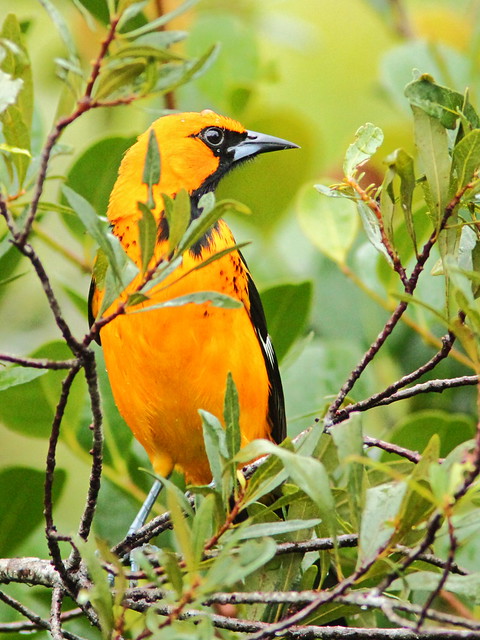
The Spot-breasted Orioles are strikingly beautiful. We returned two days later, not finding the spindalis but we did obtain more views of the orioles:
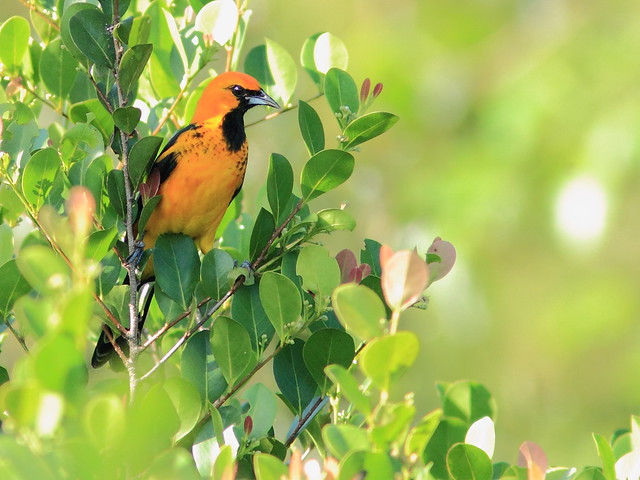
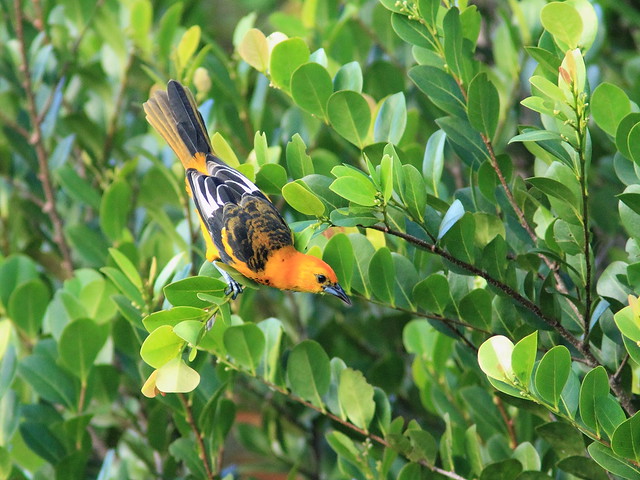
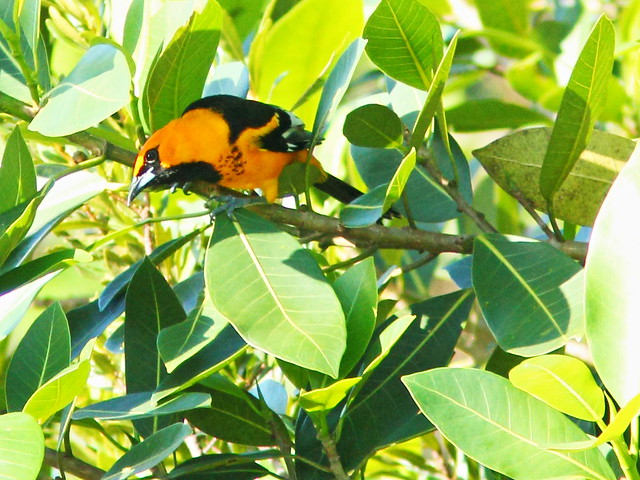
The orioles contorted their bodies, in search of insects and berries. The fruit of the native Cocoplum was a particular delicacy:
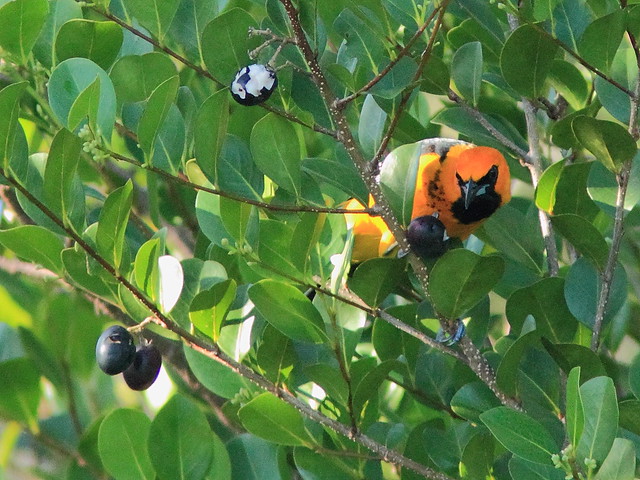
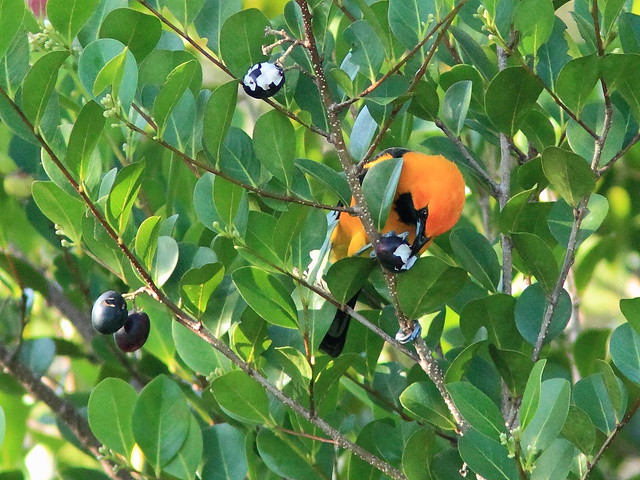
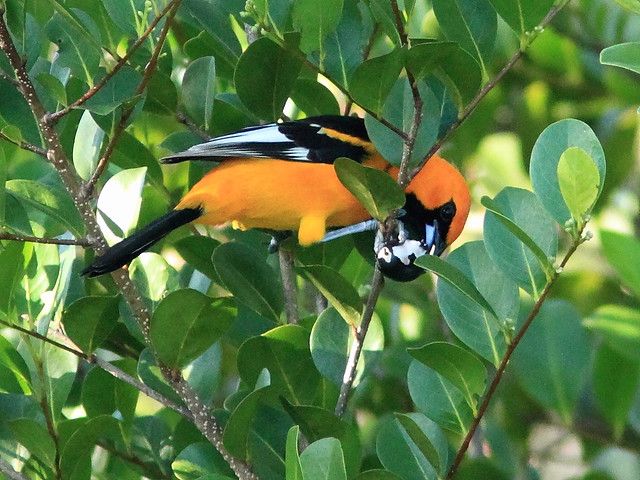
A Ruby-throated Hummingbird foraged for insects in the Cocoplum:
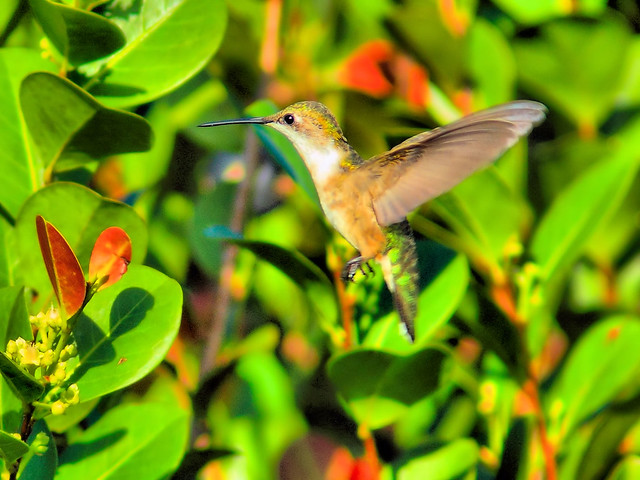
It rained every day for the better part of two weeks. Although we did not walk out into the wetlands, this Tricolored Heron appeared at the edge of the lake in our back yard around noon. By the time I got out my camera the heron had moved to our next door neighbor's yard, where it fished among a bunch of coconuts which the winds had blown into a corner of the lake. No need to chase after this handsome critter!
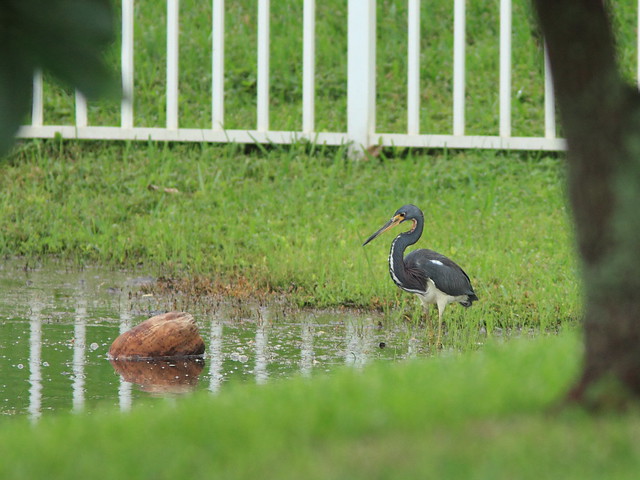
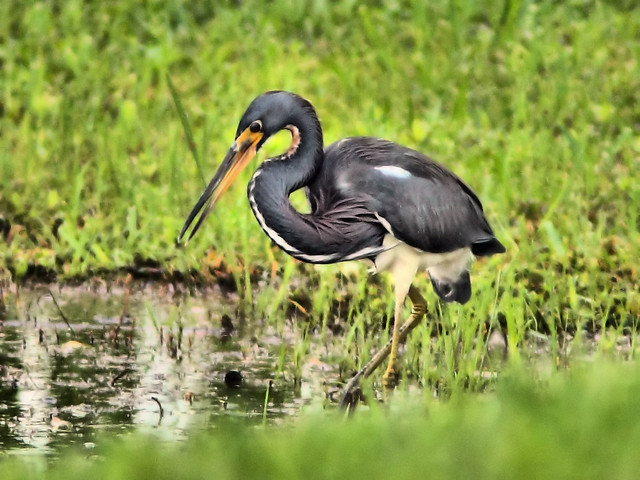
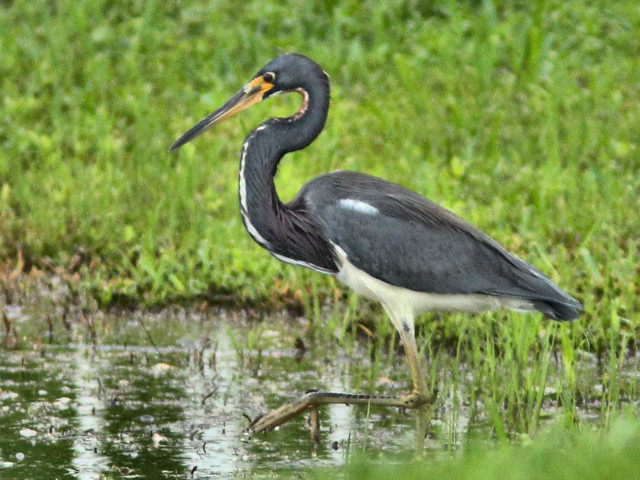 = = = = = = = = = = = = = = =
= = = = = = = = = = = = = = =
Linking to Misty's CAMERA CRITTERS,
Linking to Eileen's SATURDAY'S CRITTERS,
Linking to GOOD FENCES by Tex (Theresa).
Linking to SKYWATCH FRIDAY by Yogi, Sylvia and Sandy
Linking to WEEKEND REFLECTIONS by James
Linking to BirdD'Pot by Anni
Linking to Wild Bird Wednesday by Stewart
Linking to I Heart Macro by Laura
________________________________________________
Please visit the links to all these memes to see some excellent photos on display
________________________________________________





























































